Metropolitan Hilarion: God is willing to give everyone a wonderful gift of faith, but people must be willing to accept it



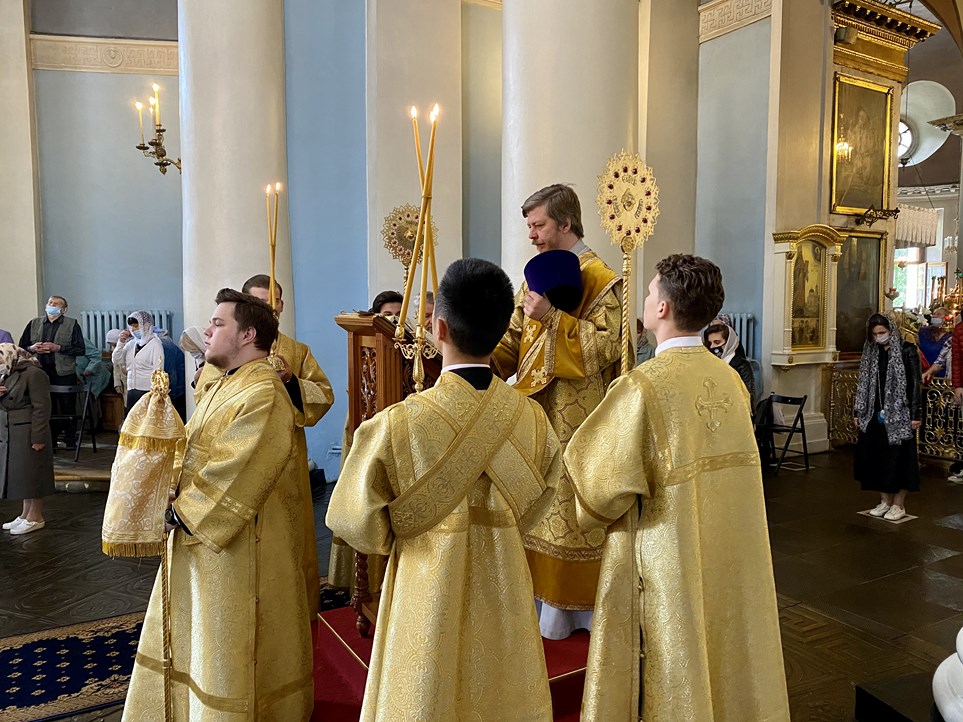
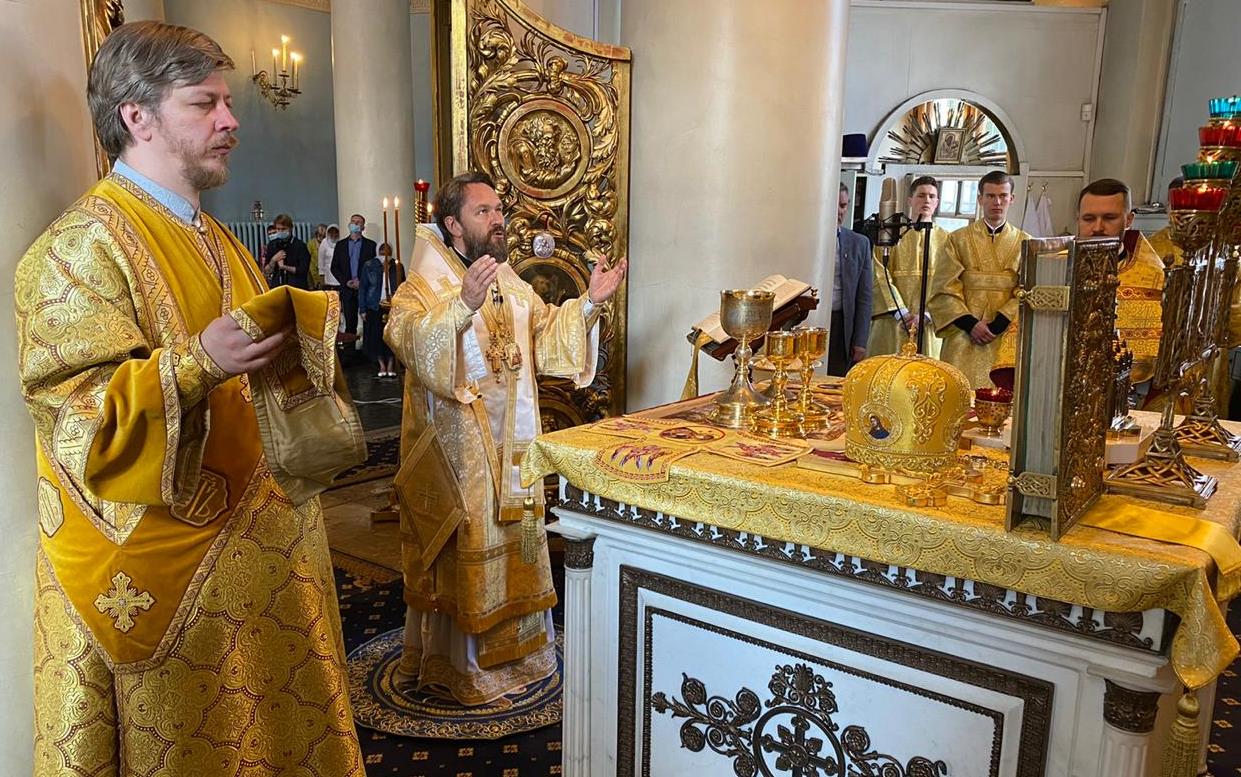
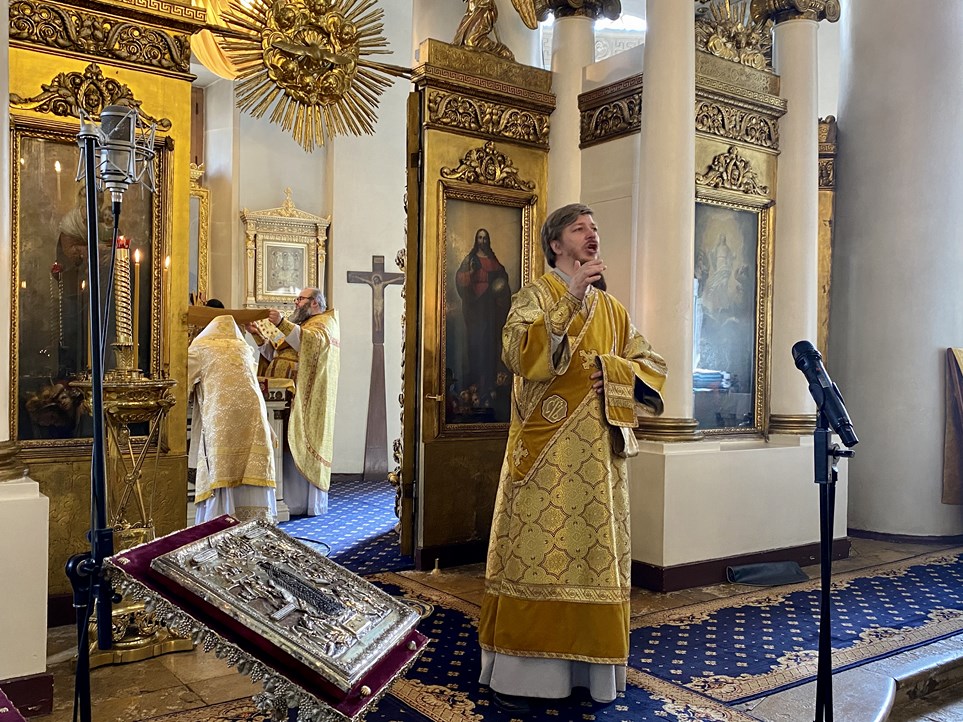
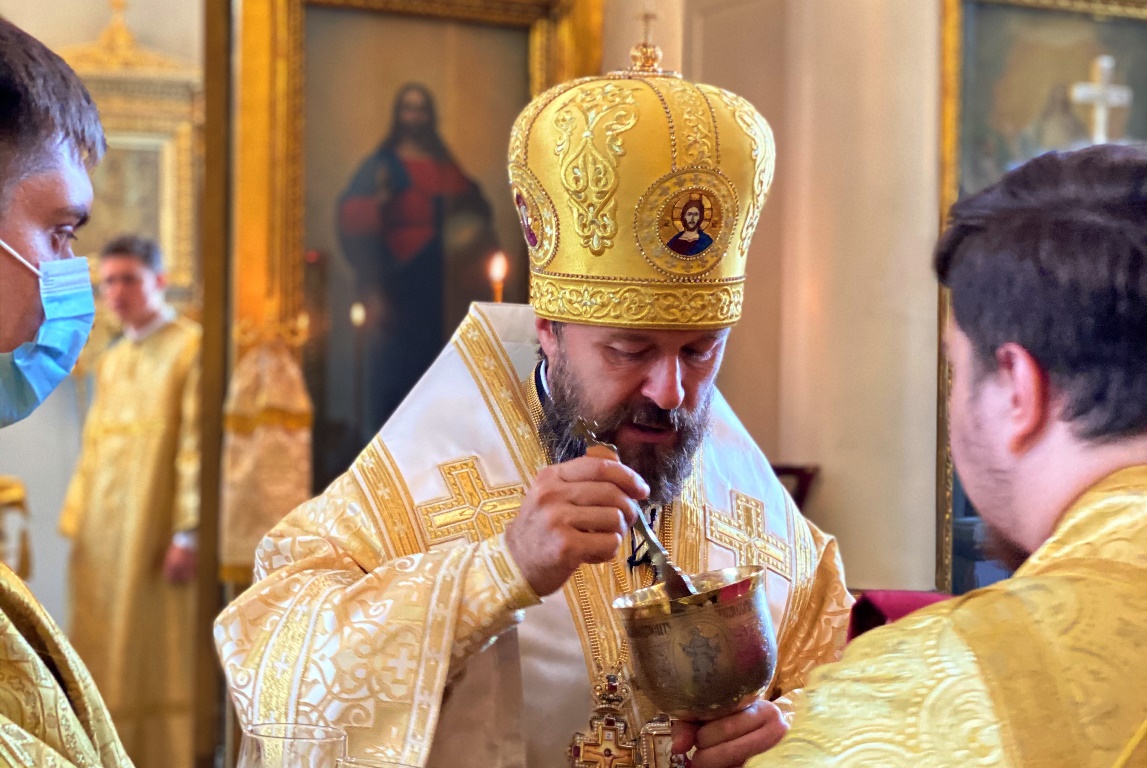
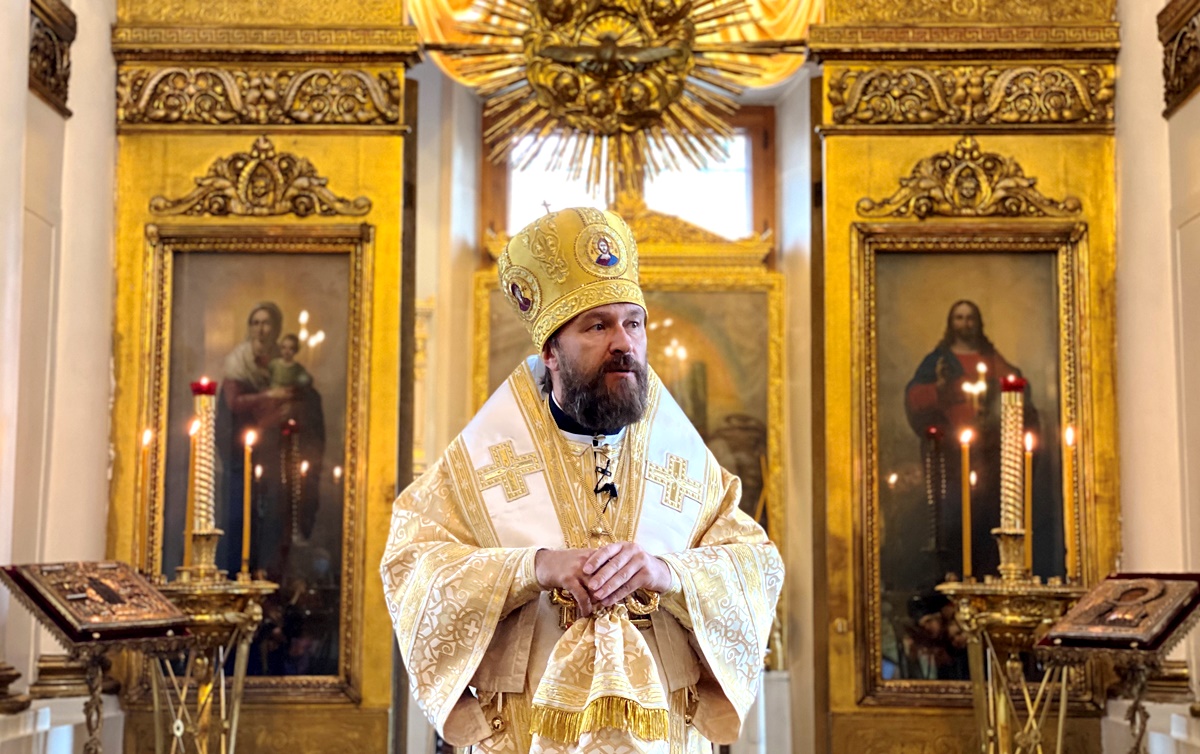
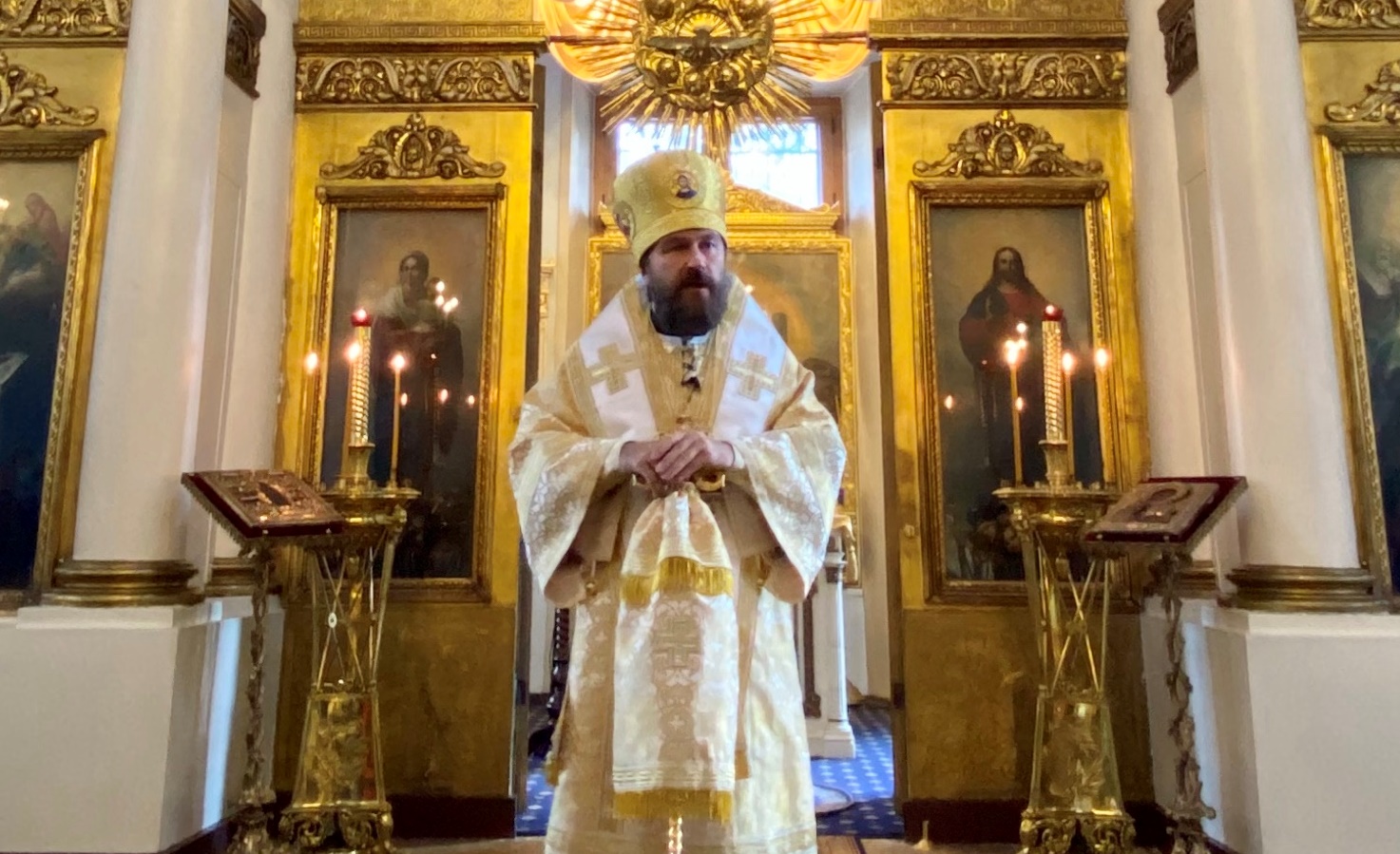
On 16th August 2020, 10th Sunday after Pentecost, Metropolitan Hilarion of Volokolamsk, chairman of the Moscow Patriarchate’s Department for External Church Relations, celebrated the Divine Liturgy at the Church of the “Joy of All Who Sorrow” Icon of the Mother of God in Bolshaya Ordynka Street, Moscow. Concelebrating with Vladyka Hilarion were clerics of the church.
During the Litany of Fervent Supplication, prayerful petitions were read out in view of the threat of the spreading coronavirus infection. After that Metropolitan Hilarion lifted up the prayer which is read at a time of harmful pestilence.
After the divine service the archpastor addressed the worshippers with a homily:
“Dear Fathers, brothers and sisters, I greet all of you on this Sunday which coincides with the commemoration day of the Holy Venerable Anthony the Roman, Wonderworker of Novgorod.
“Last week the Lord vouchsafed me to visit the sites associated with the life and ministry of this saint in the land of Novgorod, as well as the Convent of St. Barlaam of Khutyn, where the heavenly patron of our holy church, St. Barlaam, had performed his ascetic deeds.
“Of course, you know that the church, initially built on this site, was dedicated to St. Barlaam of Khutyn. It stood in the place of today’s right side-chapel consecrated in the name of the Venerable Barlaam.
“As time went by, the church was gradually rebuilt and enlarged, and the construction of the main chancel in honour of the Transfiguration of the Lord and of the side-chapel in honour of the ‘Joy of All Who Sorrow’ Icon was completed. Yet, St. Barlaam has always been venerated in our church thanks to the revered icon in the right side-chapel. One of the rectors of this church, the Holy Hieromartyr Constantine Lyubomudrov, held the Venerable Barlaam of Khutyn in ardent reverence, and died as a martyr at the Butovo Shooting Range on the commemoration day of this saint.
“Reading the life of the Venerable Barlaam, we learn that many of the miracles he performed were victories over various demonic forces. Today’s Gospel reading has told us how Christ cast a demon out of the child who at a time of the new moon suffered from demonic attacks. The Lord cured the child after His disciples had failed to do so. The apostles asked their Teacher why they could not do it albeit He had given them power to, among other things, cast out demons and heal infirmities. The Lord gave them a direct answer: ‘Because of your unbelief: for verily I say unto you, if ye have faith as a grain of mustard seed, ye shall say unto this mountain, Remove hence to yonder place; and it shall remove; and nothing shall be impossible unto you. Howbeit this kind goeth not out but by prayer and fasting’ (Mt 17:20-21).
“Christ reminds us about the three basic principles of Christian life: faith, prayer and fasting. We can see these three pillars in the life of the Venerably Barlaam of Khutyn. He was a man of firm unshakeable faith and fervent fasting and prayer. And the Lord gave to St. Barlaam such power that he could perform miracles: even in his days he was glorified throughout the great Rus’, and his glory remains to this day.
“And to us the Lord commanded to have strong and firm faith and to lead our Christian life in prayer and fasting.
“We cannot just cultivate or develop faith in ourselves by means of some self-suggestion or training. It is a gift of God; without it we cannot come to the knowledge of God and to the faith in God. Yet, while the Lord is willing to give this gift to every person, not everyone is willing to accept it. That is why we very often see that even when something special occurs, when miracles are performed before the eyes of many people and believers regard them as a sign of God’s presence, as a visitation of the Lord, non-believers only see common occurrences. They cannot or rather do not want to see God’s presence behind the events. They do not wish to pin all their life, all their hope on God, because they prefer to live in accordance with their own rules, to rely on themselves. And they have no interest in either reading the Gospel, learning the Bible, or studying the holy fathers and leading a Christian life.
“However, while God is ready to give a wonderful gift of faith to everyone and does give it to many, there is something which is required of each of us so that this gift may yield good fruits – that is why the Lord reminds His disciples about prayer and fasting. Perhaps, they did not pray enough while they were near the Saviour. Maybe, mindful of the Lord’s words that the children of the bridechamber cannot mourn, as long as the bridegroom is with them (cf. Mt 9:15), the disciples did not devote enough attention to self-discipline and bodily asceticism, were not focused enough, living absent-mindedly. And when they came face to face with a demonic force and had to challenge and defeat it, they lacked inner resources to do it: they did not have enough faith, did not acquire a skill in prayer and did not observe fasts.
“We do not say that fasting is an end in itself in Christian life, but we remember that the Lord commanded and the Holy Church enjoined us to observe fasts so that we could grow spiritually.
“St Paul said, ‘Pray without ceasing’ (1 Th 5:17). And we should not be asking ourselves how we can pray unceasingly while we need to do many other things. We can learn to live so that we have time to do everything and at the same time not be distracted from prayer, so that prayer may permeate our whole human essence.
“Faith, prayer and fasting give strength to withstand demonic temptations. In the past several days I also happened to visit the sites associated with the life and work of our great writer, Fyodor Mikhailovich Dostoevsky. There is a novel among his works, called Demons. If you have not read it, you should definitely do so. In this novel Dostoevsky portrayed the revolutionary generation – those people who were dreaming of a revolution in order to overthrow the monarchy and give people a happy future, as they imagined it. The writer showed the demonic nature of the revolutionary movement long before the revolution occurred. As for its consequences, we know well about them from, among other sources, the lives of our new martyrs, including the life of the Holy Hieromartyr Constantine Lyubomudrov. We know what the demons described by Fyodor Mikhailovich Dostoevsky did when God allowed and they took the power in the country.
“It is interesting that Dostoevsky himself, when he was young, was a member of a group that developed various revolutionary theories; its participants were against the autocracy, against the Church, against religion in general. They gathered on Fridays and their every meeting was followed by a supper. It was not a meatless meal: veal, hare in sauce and many other dishes were served. And on the Holy Friday they would demonstratively break the fast in order to show how greatly they disdained all church rules.
“It is well known how this story ended for Dostoevsky and other members of the group. The writer spent four years in hard labour and five more years in exile. From there Fyodor Mikhailovich returned a changed man, reborn spiritually, and the rest of his life he preached Christ through his work. Dostoevsky created remarkable works, in which he told about elders and monastics. Probably, he was the first Russian writer who made an attempt to seriously enter into the world of the Church.
“And why was he so interested in and so seriously attracted to this world? Because as a young man he came face to face with the demonic revolutionary force. He realized where these demons in human disguise could lead individuals and the whole country. So, as best as he could, Dostoevsky preached Christ crucified and risen, Christ not just as a teacher of morality, but as the God-man Who took flesh and revealed to people the perfect example of human life. In one of his letters Dostoevsky wrote, ‘If someone proved to me that Christ is outside the truth and that in reality the truth were outside of Christ, then I should prefer to remain with Christ rather than with the truth.’ Yet, of course, the writer saw no truth outside of Christ, because he remembered that Christ Himself had said, ‘I am the way, the truth, and the life’ (Jn 14:6).
“Let us follow the path which the Lord opened to us. Let us grow stronger in faith. Let us strengthen our faith by prayer and fasting. And let us ask the Lord to help us overcome all temptations, including those coming from demons, and to lead us on the path towards the Heavenly Kingdom. Amen”
DECR Communication Service
